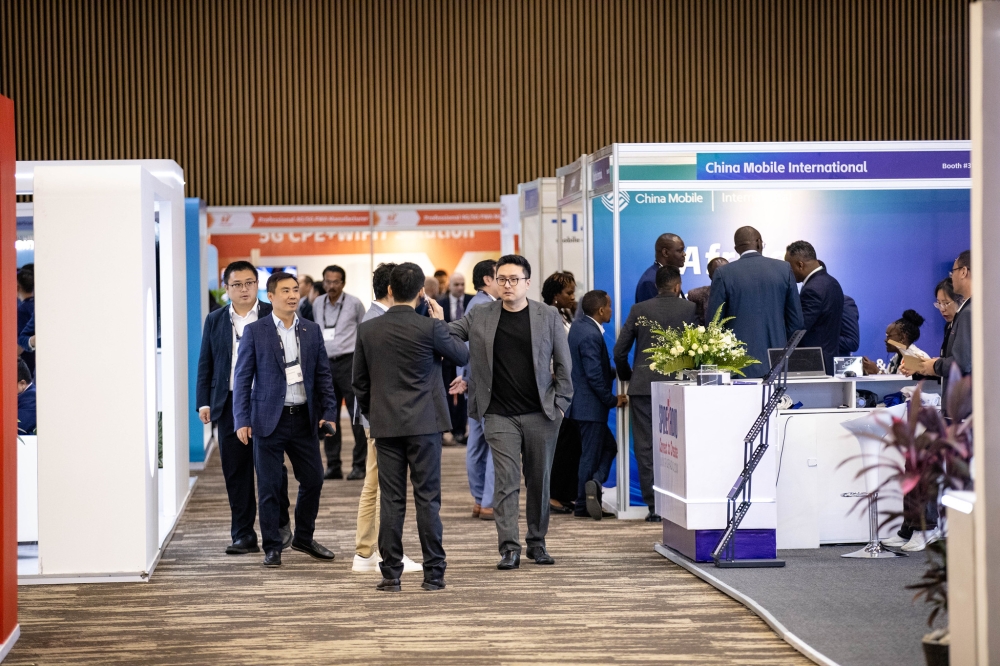Telecommunication leaders have urged African governments and industry players to harness the power of connectivity and artificial intelligence (AI) to drive inclusive digital transformation and build greener, more resilient network infrastructure across the continent.
The call was made during the third Mobile World Congress (MWC) Africa, which opened in Kigali on October 21. The three-day conference has drawn more than 4,000 participants from over 100 countries to discuss how Africa can accelerate its digital development through innovation, partnerships, and investment.
Speakers said Africa’s expanding economy, youthful population, and fast-growing digital landscape offer immense opportunities to create data-driven e-commerce hubs, localised AI ecosystems, and smart rural connectivity initiatives that can reshape the continent’s development trajectory.
ALSO READ: AI must be affordable in Africa, say experts at Mobile World Congress
Building digital foundations
Sunil Taldar, Chief Executive Officer of Airtel Africa, said cities such as Lagos, Kigali, and Nairobi are driving the continent’s digital revolution, marked by high smartphone penetration, rapid AI adoption, and rising data consumption.
“These cities are the growth anchors of Africa,” Taldar said. “Data consumption is rising, and we are seeing the emergence of local leaders in AI.”
He emphasised that expanding data centers and building reliable digital networks are critical to scaling AI’s reach and efficiency.
Taldar noted that telecom operators are evolving from bandwidth providers to digital infrastructure enablers, offering cloud hosting, edge computing, and enterprise services as part of a unified commerce ecosystem.
ALSO READ: Kagame: Technology should benefit all Africans, not widen inequality
“We are moving from centers of bandwidth to digital infrastructure providers, operating edge hosting and cloud services as part of an integrated commerce model,” he said.
He also called for collaboration among operators to accelerate AI adoption, strengthen cybersecurity, and provide safe, user-friendly digital platforms for consumers transitioning from non-digital to digital lifestyles.
“AI can play a vital role in tackling digital fraud and online scams, which continue to hinder e-commerce growth as African markets shift from voice-centric to data-driven economies,” Taldar added.
ALSO READ: AI, fintech take centre stage as Kigali hosts major connectivity summit
Inclusive innovation and local relevance
Ralph Mupita, Group President and CEO of MTN, echoed the call for inclusive innovation, stressing that Africa’s digital transformation must be rooted in local realities such as language accessibility, affordability, and reliable energy.
“One of the reasons for the usage gap we see is that many people don’t find content that reflects their language or culture,” Mupita said. “We must create digital spaces and content that Africans can relate to.”
He warned that unreliable electricity remains a major obstacle to Africa’s digital ambitions.
“If you don’t have enough power—and 600 million Africans still lack reliable access—this entire revolution will not deliver on the promise of a $2.3 trillion digital economy,” he said.
Mupita urged policymakers to speed up reforms supporting digital payments and promote a cashless economy, describing cross-border payment systems as key to unlocking Africa’s digital marketplace.
“The digital economy transcends boundaries,” he said. “We need harmonised cross-border payment frameworks and policies that reflect the financial realities of citizens to ensure affordability, access, and sustainability.”
Bridging the digital divide
Speakers agreed that AI and connectivity could be transformative if Africa invests in skills development, local data hosting, and inclusive access. They emphasised that policies must promote innovation while ensuring no one is left behind in the digital transition.
Taldar and Mupita both highlighted the need for partnerships between governments, telecom operators, and technology companies to drive investments that will bridge the continent’s digital divide.
Experts at the summit said Africa’s competitive advantage lies in its young population—over 60 percent under the age of 25—who can become digital innovators if provided with the right tools, training, and enabling environment.
As discussions continue in Kigali, delegates said that with coordinated leadership and inclusive policies, Africa has a unique chance to build a connected, intelligent, and sustainable future powered by AI and digital infrastructure.






